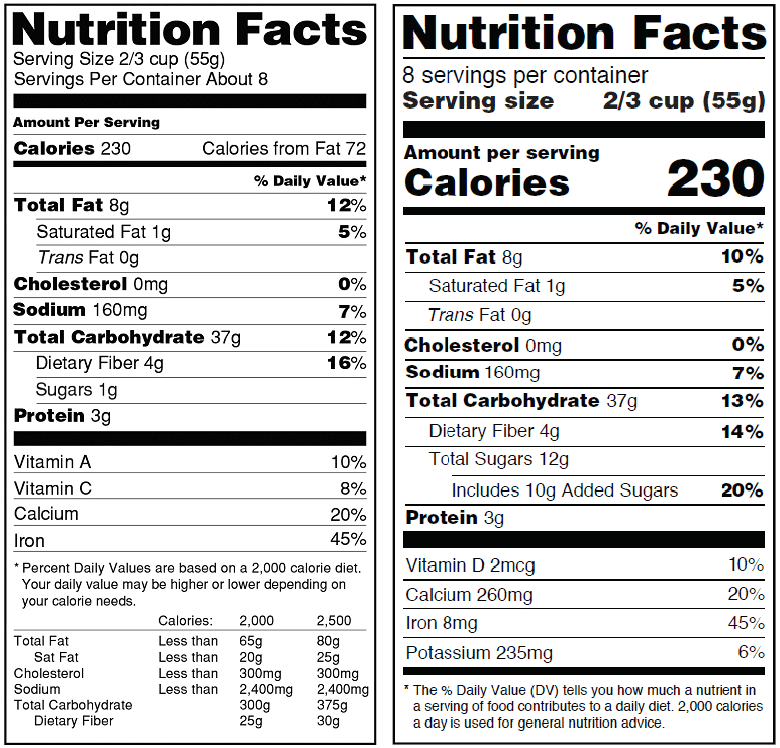
What is fruit concentrate, and is it healthy or unhealthy? Get the low-down on this common sweetener.
What is fruit concentrate?
Registered dietician Caroline West Passerrello told NPR that fruit concentrate is “fruit with the water removed.” She explains that, “It retains the sugar and calories, but it loses the volume, fiber and vitamin C.”
It turns out that “fruit concentrate”, which companies use to sweeten packaged foods, is really just another name for added sugars. The name might make it sound like a healthier sweetener, but fruit concentrate doesn’t bring any vitamin or fiber content to the table at all.
When you eat something like a whole orange or apple, you are getting sugar. What sets whole fruit apart from other sweet foods is that you also ingest vitamins and fiber along with that sugar. The fiber, especially, is key. Fiber slows down your body’s absorption of sugar, which prevents an unhealthy blood sugar spike.
What foods contain fruit concentrate?
Fruit concentrate is making its way into more and more snacks. It sounds better on an ingredients label than sugar or high fructose corn syrup, but, at the end of the day, it’s not much different from a nutritional standpoint.
Fruit concentrate can be in any product with added sugars. The list below is of common items that use fruit concentrate as a sweetener:
- granola bars
- packaged cereals
- fruit pouches (the ones that parents feed to their kids as a snack or treat)
- fruit juices
- cookies
- wine and beer (It won’t be listed on the label, but it’s used as a flavoring.)
Avoiding added sugars
When you think about fruit concentrate, look at it like any other added sugar. Too much added sugar is linked to chronic disease, so keeping all added sugars—including fruit concentrate—to a minimum is the best move for your health.
The American Heart Association recommends that women consumer at most 100 calories from added sugars per day and that men limit added sugars to 150 calories or fewer.
When you’re reading a nutritional label, definitely check the ingredients list for added sugars like fruit concentrate, if you’re so inclined. This post has a list of common names for added sugars that you might see on ingredients list. You can also look at the Nutrition Facts, which will tell you how many grams of sugar are in the food you’re about to eat. Multiply the number of grams by four, and you have the calories from sugar.
Right now, nutrition labels do not break out added sugars from natural sugars, but beginning in July of 2018, you’ll be able to see exactly how many grams of added sugar are in the food you’re buying. Here is a side-by-side of the current label vs. the new label:

As you can see, added sugars versus total sugars can be different, so those new labels will be handy! In the example above, this product has 12 grams of total sugars, but 10 grams of added sugars. That’s 40 calories from added sugars.
With some savvy label-reading, you’ll be able to easily minimize the added sugars—including from fruit concentrate—in your grocery cart without having to squint at ingredients lists, searching out added sugars by names.
This post originally appeared on Care2.com.










